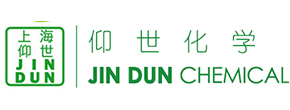Indonesia's "aluminum ban" may not create aluminum version of the "nickel miracle"
2023/6/14
Indonesia has already banned aluminum before
From the point of view of reserves, Indonesia's bauxite reserves are not much, the data released by the U.S. Geological Survey in 2022 shows that the global bauxite resources in 55-75 billion tons, proven reserves of about 32 billion tons, of which Indonesia's reserves of about 1.2 billion tons, accounting for about 4% of the world. From the production point of view, according to Aladdin statistics, the global bauxite production in 2022 will be 400 million tons, with Indonesia producing 27 million tons, accounting for about 6.75%. From the bauxite reserves and production data, Indonesia bauxite ore has a certain influence in the world, but compared with Guinea, Brazil accounted for a relatively small.
Indonesia had previously banned aluminum and then released. Indonesia had signed a mining bill banning bauxite exports in 2009, and began banning exports after it took effect in 2014, but resumed bauxite exports in 2017. The current round of bans began in 2019, and in 2019 Indonesia's coordinating minister said Indonesia studied accelerating the introduction of a ban on bauxite exports, and Indonesia's president said he planned to ban bauxite exports in 2022. Subject to the global economy and Indonesia's lack of domestic downstream processing capacity, the President of Indonesia said in January 2022 that bauxite exports would be suspended until the end of 2022, and on December 21, 2022 the President of Indonesia announced a ban on bauxite exports starting in June 2023.
The previous ban and then release the export, on the one hand, was affected by the global economic environment and the relatively difficult local financing at that time, on the other hand, was the result of insufficient local bauxite downstream processing capacity in the early stage. At present, the local downstream processing capacity has improved, according to the Indonesian co-ordination minister revealed that the local existing four bauxite processing plant, alumina capacity of 4.3 million tons, can digest about 12 million tons of bauxite, there are nearly 5 million tons of capacity under construction. For electrolytic aluminum, according to Shanghai Nonferrous Metals (SMM), on May 25, 2023, Indonesia Huaqing electrolytic aluminum electrolytic workshop series busbar and compensation busbar short intersection was successfully switched, the second 125,000 tons electrolytic aluminum workshop was successfully energized, and the first 250,000 tons of electrolytic aluminum project of Indonesia Huaqing electrolytic aluminum project was all put into operation. In addition, there are several planned projects with a long term capacity planning of over 9 million tons/year. However, according to relevant information, the current local bauxite downstream project in Indonesia is still facing license, land acquisition, power supply and other issues need to be resolved, there is still uncertainty in terms of production schedule, the current downstream processing capacity can not digest bauxite production, is expected to take some time.
Indonesia banned aluminum to China limited impact
The reason why Indonesia proposed to ban aluminum, no doubt want to create a "nickel miracle" in aluminum ore, but the current view is more difficult. Indonesia in the ban on nickel exports, its domestic nickel downstream investment and rapid development, mainly because: (1) Indonesia has excellent resource endowment. Whether in terms of reserves or production, Indonesia's nickel ore is located in the world's first, and local reserves and production are expected to continue to increase, making Indonesia dominate the upstream of the nickel supply chain for a long time. (2) Nickel ore grade is relatively high. Compared with Indonesian nickel ore, Philippine nickel ore grade is lower and more laborious to purify. Therefore, with the rapid development of stainless steel and new energy industry, Indonesia has taken advantage of its unique nickel resources and superior geographic location to attract a large number of Chinese companies to invest and build factories in the process of the two bans in 2014 and 2020.
And Indonesia aluminum ore is not irreplaceable, to China's import ore pattern, for example, by the impact of Indonesia's raw ore export ban in 2014, China to promote the diversification of bauxite import sources, Guinea, Australia has become China's imports of bauxite two major source countries. With the deepening of the diversification of import sources, Guinea has gradually become China's first bauxite importing country, and the import ratio is increasing, and China's dependence on Indonesia's bauxite imports is gradually reduced. Therefore, it is more difficult for Indonesia to create a "nickel miracle" in bauxite.
Therefore, although Indonesia is a global bauxite production country, is also one of China's main sources of bauxite imports, but Indonesia's bauxite ban on China's impact is limited.
On the one hand, the export ban on Indonesian bauxite, as early as the end of 2021 has been news, as of now this year and a half time, the domestic alumina production enterprises have sufficient preparation time, and in Guinea mine before the introduction of a large number of Indonesian bauxite is mainly used by alumina plants in Shandong, Shandong alumina plants have been replaced one after another for the import of relatively stable supply of Guinea and Australia Bauxite ore, so Indonesia ban on Chinese alumina enterprises production impact is relatively small.
On the other hand, from the import ore data, January to April, China imported a total of 47,661,900 tons of bauxite, an increase of 8.73% year-on-year. Among them, imports of Guinea bauxite 34,826,800 tons, accounting for 73.1%; imports of Australian bauxite 9,254,000 tons, accounting for 19.42%; and imports of Indonesian bauxite for 1,881,800 tons, accounting for only 3.9%. And from the April import data, April China has no Indonesian imports of ore, it can be seen that the Indonesian ban on mining led to China to increase the amount of bauxite imports from other countries, so as to make up for the supply and demand gap brought about by the Indonesian ban on mining. Therefore, the export ban on Indonesian bauxite from June has limited impact on China's import of bauxite. However, due to Guinea transportation and mining costs are higher, so the comprehensive cost of Guinea ore is higher than Indonesia ore, the subsequent Chinese bauxite import costs or will increase.
In addition, Indonesia's policy itself also has greater uncertainty, such as Indonesia also had an export ban in 2014, but in 2018 and resumed normal exports, so the policy also has the possibility of repeated, the impact on the domestic aluminum industry is relatively small.
JIN DUN CHEMICAL has built a special (meth) acrylic monomer manufacturing base in ZHEJIANG province. This makes sure the stable supply of HEMA, HPMA, HEA, HPA, GMA with high level quality. Our special acrylate monomers are widely used for thermosetting acrylic resins, crosslinkable emulsion polymers, acrylate anaerobic adhesive, two-component acrylate adhesive, solvent acrylate adhesive, emulsion acrylate adhesive, paper finishing agent and painting acrylic resins in adhesive.We have also developed the new and special (meth) acrylic monomers and derivatives. Such as the fluorinated acrylate monomers, It can be widely used in coating leveling agent, paints, inks, photosensitive resins, optical materials, fiber treatment, modifier for plastic or rubber field. We are aiming to be the top supplier in the field of special acrylate monomers, to share our rich experience with better quality products and professional service.

